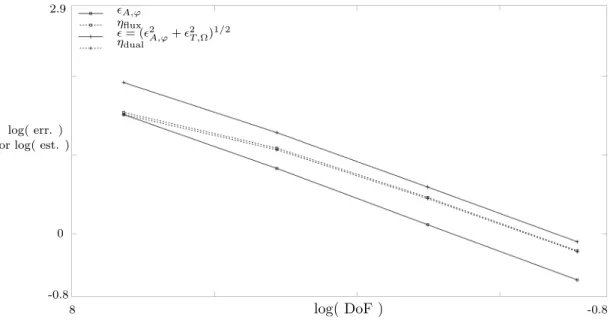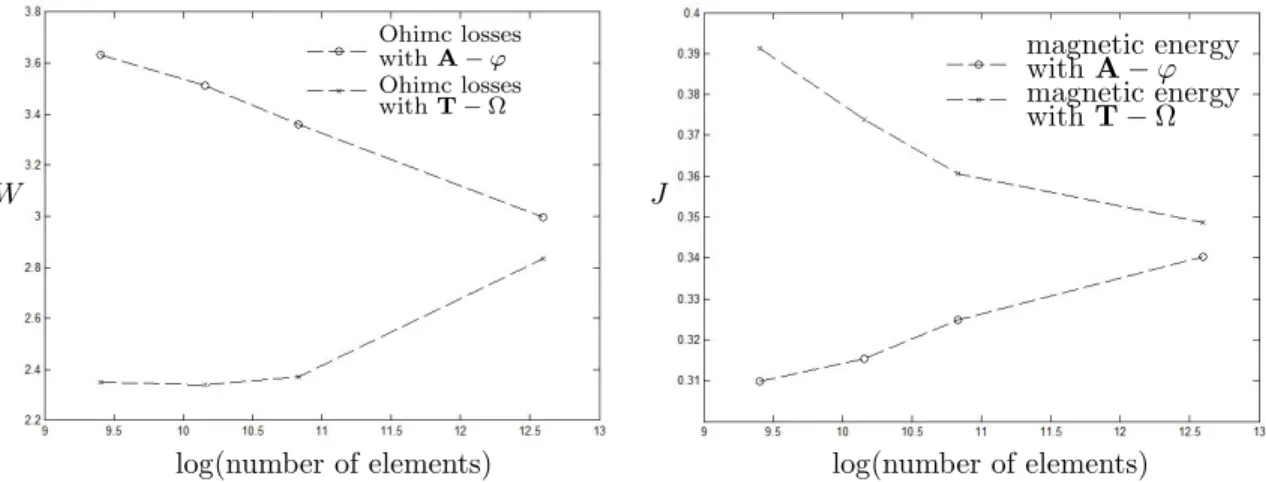Two Guaranteed Equilibrated Error Estimators for Harmonic Formulations in Eddy Current Problems
Texte intégral
Figure




Documents relatifs
Cette thèse est consacrée à la présentation et discrétisation du problème de Darcy multi- phasique, ainsi qu'à la mise en ÷uvre de stratégies de résolution du problème de
We give an a posteriori error estimator for nonconforming finite element approximations of diffusion- reaction and Stokes problems, which relies on the solution of local problems
We finally in Section 5 present our second main result, the local efficiency and robustness, with respect to reaction (and also diffusion) dominance and also with respect to the
The kriging approximation is built using a random process model of the simulator and a set of simulation results obtained for a number of different input configurations.. The
A posteriori error estimates for finite element discretization of (1.1a)–(1.1b) have been a pop- ular research subject starting from the Babuˇska and Rheinboldt work [8]. One
We consider the associated decision problem: given an execution graph, a deadline, and a bound on the energy consumption, can we find an execution speed for each task such that
The pragmatics of reference in children language: some issues in developmental theory, in Social and Functional Approaches to Language and Thought (pp.. The development
This paper introduces an error estimator based on the constitutive relation which provides an upper bound of the global error for parametric linear elastic models computed with
